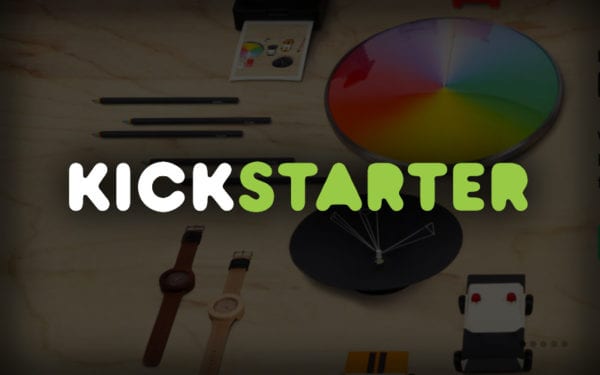
Getting financing for a startup is often a serious challenge. You’ve got an idea but turning that idea into reality will cost money. Of course, the best startups will start with the business owner having a little cash in the bank to get things rolling but in the course of every business’s lifetime there’s a time when you need more money to get things moving in the right direction.
Theoretically, a business owner should be able to turn to a bank for a business loan but banks are loathe to lend to most startups. Why? Because there’s usually little (or no) incoming cash and thus there’s no security for the loan. This reluctance to lend increased following the financial collapse of 2008 and there’s no signs of this improving in the near future. That means you’re going to have to think outside of the box to get your business the money it needs and with that being the case – here are 15 creative ways for you to get financing for your startup that don’t involve bank business loans.
Angel Investment

An angel investor is a private individual or business which is willing to front funds to a business in exchange for a portion of the equity in that business. Angel investors are typically going to invest relatively small amounts (less than $1 million) into an early stage business and are going to expect to take around 25% of the equity in exchange for their cash. Angel investment has been called on by some of the biggest brand names on the Internet such as Google and Yahoo! A good angel investor is also likely to provide strategic direction for the company as part of their investment.
Competition Entries
Small businesses don’t always need to attract an investor to get their cash flow moving. There are numerous small business competitions where a business may demonstrate their business idea and business plan and win a certain amount of money (typically less than $100,000) to get their plan moving forward. Often these competitions will also provide a group of overseers for your project to help define the strategy to get the most results from the prize money.
Credit Card Debt
Credit card debt sucks as a general rule. It’s high-interest compared to many other forms of borrowing but it does have the advantage that you don’t need anyone’s permission (apart from your bank’s) to take on the debt and it’s unsecured debt so you’re not giving away any part of the business when you use credit cards to fund its growth. Credit card debt is best used for short-term cash flow issues unless you’re prepared to gamble your credit rating on guaranteed growth.
Crowdfunding

Crowdfunding is done online through sites like Kickstarter.com. The idea is simple. Show your idea and the finished product. Then ask people to contribute towards the manufacturing or development of the product. In exchange for their cash; you typically offer rewards (usually but not always in the form of the finished product). You do not give crowdfunders a share in the business but if you fail to deliver on your promises – you may find that it’s impossible to get crowdfunding again in the future.
Factoring
If you have outstanding invoices and you want a quick solution to your cash flow issues; factoring might be the way forward. In this instance you sell the debts you are owed to a factor (at a discounted rate) to get cash quickly. Make sure to hunt around for the best rates and only use factoring when it makes sense to do so; talk to an accountant about the best way to manage this.
Friends and Family
If you have a dream and can show how you’ll turn this into reality – you might want to see if you can convince your friends and family to back you. This kind of credit is often dirt cheap when compared to commercial borrowing and you may not have to surrender any equity to get their backing. Be warned though – if your business tanks, you may lose friends if you can’t pay them back.
Grants

There are a ton of ways to get grants for businesses. There are non-profit foundations in many areas of business that are happy to put a few thousand dollars into a small business. There are government agencies in many parts of the world that will back businesses with grants too – some of these are location based but others may be focused on the type of business (such as sustainable energy). Grants are good because they aren’t loans – if your business fails or succeeds as long as you used the grant funding wisely; it’s not something you have to pay back.
Home Equity Loan (Mortgage)
If you have some equity in your home; you might want to consider remortgaging to release some of that money. Mortgages rates are at their lowest ever cost at the moment which means they’re among the cheapest forms of credit you can get. If you choose a fixed rate mortgage you can also be certain of what your repayments will be moving forward. The down side of mortgaging your home for your business is that if you don’t meet the payments – you risk losing your home.
Online Loans
There are lenders online who are slowly beginning to provide business loan services; they’re usually highly specialist providers with very specific criteria. However, unlike banks – if you meet those criteria – you can get a loan. Check out Kabbage or OnDeck for examples of these lenders. Decision making isn’t lightning fast on these kinds of loan but they are usually faster than traditional banks. We expect to see a huge amount of growth in this area of lending.
Personal Loans

A personal loan can often be provided by your bank and unlike a business loan it won’t be secured on your business or indeed anything else. The interest rates for personal loans are usually better than those offered by credit card lenders and it can be a great way to access a little cash to get your business on a better footing. There’s no need to cede any equity with a personal loan too.
Pre-selling Products
It’s not just crowdsourcing platforms where you can offer products for sale before they’re ready – you can use your own website or a specialist vendor’s site to do so. For example, Steam, the online games vendor allows people to pre-sell games on their platform using their early-access and greenlight programs. Getting cash for products prior to their release is a great way to get cash flow without giving up any share of your business. It’s important to deliver on your promises though or you’re unlikely to be able to do the same thing twice in the future.
Renting Out Your Home
If you have a big home; it might be a good way to raise money to move out and rent your home out while you rent a cheaper place. The difference between the two is then capital for your business. You might also consider renting out a single room in your home if you don’t want to move out – using your property as an asset can be a great way to generate money with little risk.
Selling What You Already Own

If you have stocks and shares or a nice collection of desirable collectables; you might want to consider liquidating them in order to raise funds. This is one of the lowest risk ways to generate cash for your business. Sure, it might mean that your future isn’t quite as secure but hopefully your business will be generating enough revenue to make up the difference in the long run.
Side Business
If you already run one business; it can be a great idea to use that business as a platform to generate money for the new business. If you have satisfied customers – they might be willing to buy products or even invest funds in a new idea.
Venture Capital
Venture capital should often be seen as the port of last resort for fundraising. Venture capitalists are the source of the largest investments for businesses and often a venture capitalist won’t touch an investment of less than $5 million (or possibly more). In exchange for their investment; you will have to concede a fairly large share of your equity and some control over how the business is run in the day-to-day. That’s not always a bad thing – venture capitalists bring a lot of management experience with them but it may mean that the eventual company that emerges after their involvement bears little resemblance to the one that you dreamed of owning.
